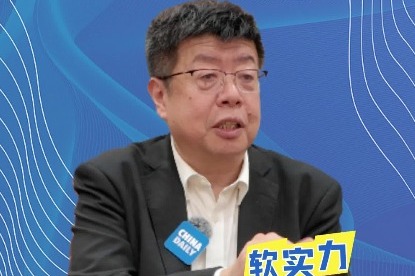New US tariffs pose threats to ASEAN nations
Experts: Latest move will undermine the stability of global supply chains

The United States has announced new tariffs for over half of the member states of the Association of Southeast Asian Nations, China's largest trading partners, which analysts said is a calculated escalation of Washington's efforts to reconfigure global supply chains away from Beijing.
The prospect of higher US tariffs could translate into higher prices for US consumers already grappling with persistent inflation and would undermine the stability of global supply chains, they added.
US President Donald Trump on Monday set out plans for a 40 percent tariff on goods from Myanmar and Laos, a 36 percent tariff on goods from Thailand and Cambodia, a 32 percent tariff on Indonesia, and a 25 percent tariff on goods from Malaysia.
"These tariffs appear designed to make it economically disadvantageous for these Southeast Asian countries to maintain deep supply chain links with China, forcing a decoupling by increasing the cost of their exports to the US market if Chinese inputs or intermediate goods are involved," said Chen Wenling, former chief economist at the China Center for International Economic Exchanges.
The new tariffs will take effect on Aug 1 unless these countries can broker new trade deals with the White House. Trump threatened to raise rates even higher if any of the countries sought to evade the US duties by shipping through other nations.
Zhou Mi, a researcher at the Chinese Academy of International Trade and Economic Cooperation, said, "Additional tariffs will inevitably impact everyday affordability for US families."
"Moreover, they will disrupt global supply chains, compounding the challenges facing the already fragile global economic recovery," Zhou said.
According to Trump, there will be no tariff if these countries or companies within the countries decide to build or manufacture products within the US, and that "in fact, we will do everything possible to get approvals quickly, professionally and routinely — in other words, in a matter of weeks".
Earlier this month, Washington already made a deal with Vietnam, an ASEAN country that would see its exports to the US face a 20 percent tariff — lower than the 46 percent Trump had threatened in April.
But Vietnamese goods would face a higher 40 percent tariff "on any transshipping", when goods shipped from Vietnam originate from another country, such as China.
Guan Jian, a partner at Beijing Grand Win Law Firm, said the US approach toward Vietnam, imposing steep tariffs on goods suspected of being transshipped from another country, including China, could very well become a standard playbook in its future trade negotiations.
Chen, former chief economist at the China Center for International Economic Exchanges, said that China has forged tightly knit industrial and supply chain ties with ASEAN countries, which have become China's top trading partners for five consecutive years. In some ASEAN nations, over 70 percent of the intermediate inputs in their manufacturing sectors are sourced from China.
"The numbers tell the story. It's not easy for Washington to undermine the market-driven integration," Chen said.
Today's Top News
- China's grain output hits new high in 2025
- Trump drops EU tariff threat after deal framework over Greenland in Davos
- China's message in Davos draws praise
- Consensus, not coercion, key to Ukraine crisis
- Wide view seen as key to full grasp of China
- Trump seeks immediate talks on buying Greenland






























